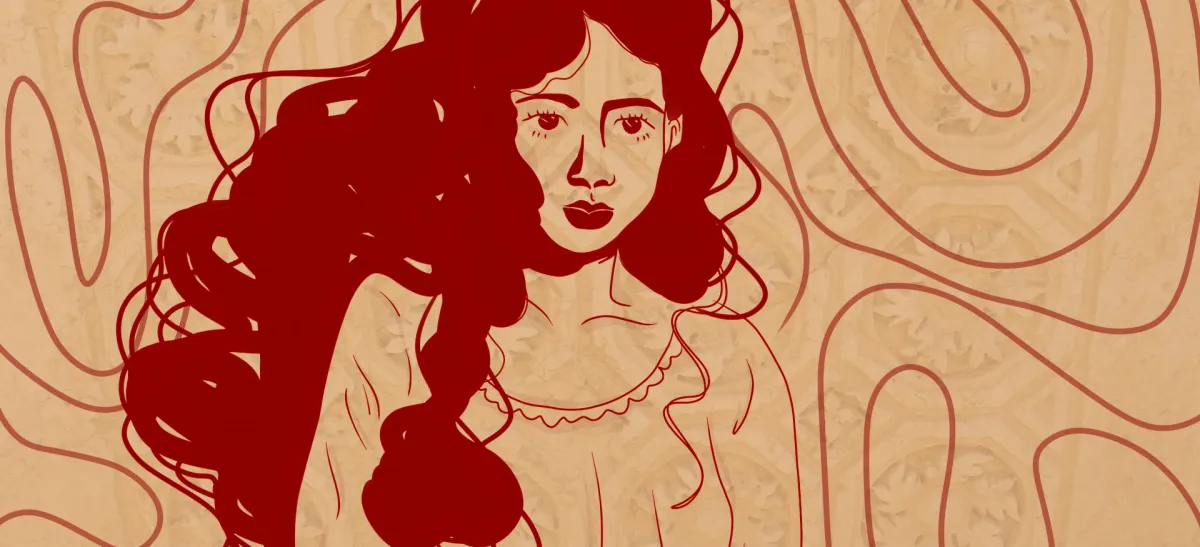As a Daughter of Immigrants, I Wish My Parents Had Sat Me Down for a Talk About Racism
With a lot of generational baggage and a complex heritage, I laughed at all the micro-aggressions thrown my way, and I wish I'd understood why earlier.

Access the Audio Read version of this article directly on Spotify for Podcasters.
"When you grow up in an environment that refuses to acknowledge colour, that’s when you start growing the seed of disrespect - towards yourself and others."
They say education starts at home, yet, when it comes to racism, nothing is too sure. As a mixed, Oriental, Hispanic, white passing teenager living in a predominantly white environment in a French suburb, and going to a Catholic school, I conveniently erased my own identity to fit the mould through all academic terms, laughing at the racist and Islamophobic jokes thrown my way like a good, ‘fun’ girl - a full denial I couldn’t entirely comprehend until I was an adult and living far, far away.
Still unsure of where I belonged on the racial spectrum, I experienced the struggle of administrative forms while living in America when I was 26, and if it wasn’t for an African American friend breaking the news to me that I was, in fact, Brown, I’d still be ticking the wrong box. That sudden realisation made me feel confused and clueless about my own heritage, but it made me want to dig deep. My whole life I had identified as French, as Syrian, as Spanish, depending on the mood of the day, but what was I, truly?
I wish my parents had sat me down to talk about the complexities of a mixed heritage, of what to expect from the world and the system as I grew up, but I also wish they had given me a broader view of who I was. It took almost three decades for me to realise I was part Asian, and that I didn’t want to be labelled all this time because I had been conditioned to not want to tick any other box than ‘White/Caucasian’. I also wish they had warned me about the tendency I would later on develop, to joke about it all and accept micro-aggressions. While these aggressions were not directed towards the colour of my skin, they focused on other parts of my identity, associating them to embarrassment at a young age, from my family’s names to ‘my dad’s accent’, religion and every other trope about Arabs and the Middle Eastern culture - and I was in on the joke, indulging it.
Becoming an adult and researching the topic at length helped me check my own privilege. Your heritage does not absolve you from criticism when it comes to racism and prejudice, and I started remembering the number of times I had been a witness to people of colour being racist towards themselves - my father included. A Syrian immigrant in France, he had millions of stories about the problematic behaviour of his ‘friends’ in the country of ‘liberty, equality, fraternity’. Friends who called Arabs ‘thieves’ in front of him, quickly adding that ‘he wasn’t like them’. To show he was proud to be the exception, he laughed along with them, and participated. While these stories always made me tick, I did the same thing as I grew up, often cracking the joke before anyone else did.
I’ve always been a fan of dark humour and sarcasm, until I realised the root was trauma. A defence mechanism and an effective way to build a wall before things could hurt. When I was around 7, I had my most memorable experience of discrimination - and my most vivid school memory. A little white Catholic girl didn’t want to partner with me in PE class ‘because I was an Arab’, and I remember feeling shame. Her punishment was to repeat what she had said in front of all students, multiplying my humiliation by 30. As a young child I, too, once refused to let my dad drink in my glass ‘because he was an Arab’. I remember the fury, but I don’t remember the talk. Of course I now know these words came from a very specific place, and considering I spent every day in that bigoted school, my parents must have known that environment was encouraging self-denial.
We never had a talk about racism, but I collected all the clues as an adult and realised they did the best they could given their circumstances. I was given an ‘international’ first name that my parents chose carefully so I could have all my chances while growing up in a racist country. They knew work and rental applications would be ten times harder if my Oriental middle name had been bumped up. I was raised by a parent who changed his own name to a French one because it was ‘better for business’. This moved him to the category of ‘friendly Mediterranean businessman’ for banks and prospects, one with less stigma attached to it.
As an adult, I do understand the choice he made, to close the door behind to seemingly embrace a new identity, but it showed me a pattern that was hard to shake. After all, it is playing along, selling out, just as much as it is survival mode, and I know these are not mutually exclusive. But as hard as it is to admit or even write it, there is a level of discomfort I wish immigrant parents (and everyone who isn’t Black for that matter) could let themselves get to, to allow themselves to check our own internal bias, and our own privilege. To wonder why we let some things happen when it’s convenient, and why we protest on other occasions. Where I grew up, no one spoke of racism. It was something that existed on the news, manifested in verbal or physical attacks, but we never spoke of the million other ways it exists around us - and just how much your environment can brainwash you. Race insensitivity wasn’t ever a topic of conversation, because no one spoke of it. Not at home, and even less at school.
I also ask myself about the responsibility of teachers and school staff. Mine pretended racism didn’t exist, that the world was a Benetton ad in the nineties and that everyone was equal. When you grow up in an environment that refuses to acknowledge colour, that’s when you start growing the seed of disrespect - towards yourself and others. When I talked to my other immigrant friends about this, they shared similar patterns, from racist jokes at our own expense to heritage-bashing, and we now know as adults we will teach our future children to take pride in their mixed origins, and not just when the context is favourable.
Many of us with a mixed heritage - sometimes one that doesn’t show on our faces - feel the same way. We’re adults with a whole lot of generational baggage and a complex identity - some of it we learn along the way, some we deny unconsciously. But as much as I’m proud to be who I am now, I’m also not done looking for where I really come from, and how I can celebrate it. And when I ask myself what it means to actually ‘do the work’, I do believe it starts with a good, critical self-check, and untangling the roots of ignorance and insensitivity.





